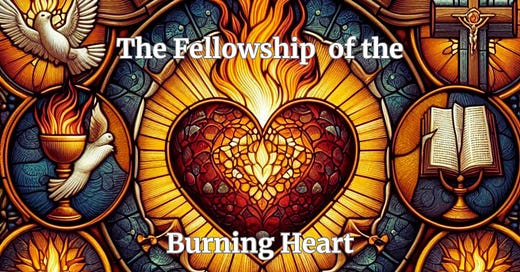No Mere Man
John Stott, one of the great voices of the 20th and 21st centuries, had a remarkable gift for cutting through theological clutter and arriving at the heart of the Gospel. He once wrote:
“Jesus of Nazareth is the heaven-sent Savior we sinners need. We need to be forgiven and restored to fellowship with the all-holy God, from whom our sins have separated us. We need to be set free from our selfishness and given strength to live up to our ideals. We need to learn to love one another, friend and foe alike. This is the meaning of ‘salvation.’ This is what Christ came to win for us by his death and resurrection.”
Stott’s words are a refreshing call back to the essentials of the Christian faith. Jesus isn’t merely a moral teacher, a prophetic voice against injustice, or a model of virtue - though he’s all those things in part. If we reduce him to such categories, we diminish him. He is, as Stott declared, the heaven-sent Savior we sinners need. The Gospel is not a self-improvement plan. It isn’t a program of moral refinement. It’s the announcement that God himself has come to rescue us.
Jesus once asked his disciples, “Who do you say that I am?” (Matt. 16:15). It’s a question that every generation must answer. Peter responded, “You are the Christ, the Son of the living God” (v. 16). That confession remains the dividing line of history. Either Jesus is the Son of God, or he’s not. If he is, then his coming, his death, and his resurrection change everything.
Our Deepest Need
Stott was right to emphasize our need for forgiveness and restoration. The problem of sin isn’t that it merely makes us feel guilty or causes harm to others - though it certainly does both. Sin separates us from the all-holy God. As Paul wrote, “For all have sinned and fall short of the glory of God” (Rom. 3:23). Our rebellion in Adam, and our own personal sins, have alienated us from our Creator. Without forgiveness, there’s no fellowship. Without atonement, there’s no reconciliation.
Yet Christ has come to bridge that chasm. The prophet Isaiah foretold, “But he was pierced for our transgressions; he was crushed for our iniquities; upon him was the chastisement that brought us peace, and with his wounds we are healed” (Isa. 53:5). Jesus didn’t merely teach about salvation; he secured it. By his death and resurrection, he made the way for sinners to be forgiven and brought back into fellowship with the Father. This is not just theology – it’s life itself.
Freedom from Selfishness, Strength to Live Righteously
If our need for forgiveness is our greatest problem, our ongoing battle with selfishness is a close second. I do not need to look far to see my own selfishness - I see it in the mirror every day. Left to myself, I choose comfort over sacrifice, self-interest over self-giving, pride over humility. But Stott reminds us that salvation isn’t just about forgiveness – it’s also about transformation.
Jesus doesn’t merely cleanse our past; he reshapes our present. He’s given us “a new heart, and a new spirit” (Ezek. 36:26). The Holy Spirit empowers us to grow in holiness, to love selflessly, and to live as Christ has called us. As Paul wrote, “It is no longer I who live, but Christ who lives in me” (Gal. 2:20). Salvation isn’t merely a legal transaction – it’s a divine invasion of grace.
Loving the Unlovable
Stott’s final point is particularly striking: “We need to learn to love one another, friend and foe alike.” In our divided world, even Christians sometimes speak and act as if they have permission to despise their enemies. But the call of Christ is different.
Jesus commanded, “Love your enemies and pray for those who persecute you” (Matt. 5:44). That kind of love is impossible apart from grace. Yet it’s precisely this love that marks true discipleship. The world expects us to retaliate. The world expects us to hate. But we follow a crucified Lord who, in his final breath, prayed for the forgiveness of those who mocked and killed him (Luke 23:34).
The salvation Christ won for us isn’t just about avoiding hell or securing heaven. It’s about becoming a new kind of people - a people who forgive, who love, and who reflect the grace we’ve received. This is the Gospel in full. It is past, present, and future: we have been saved, we are being saved, and we will be saved.
Thanks be to God.
Questions for Personal Reflection
How do you answer Jesus’ question, “Who do you say that I am?” Do you see him as your Savior, or merely as a great teacher?
In what areas of your life do you still struggle with selfishness? How is Christ calling you to grow in selfless love?
Are there people in your life whom you struggle to love - perhaps because of personal, political, or ideological differences? How can you surrender those struggles to Christ?
Walking Points
Take time this week to meditate on what it means that Jesus is your heaven-sent Savior. Read and pray through Isaiah 53 and John 3:16-18. Let the truth of the Gospel sink deeply into your heart.
Identify one way you can tangibly love someone who’s difficult to love. Whether it’s through an act of kindness, a word of encouragement, or a commitment to pray for them, begin practicing the love Christ has called us to embody.
Thank you for taking the time to read this devotional. If you found it encouraging, I invite you to share it with others who might benefit from it. You can also subscribe to my website, Walking Points, to receive more devotionals and reflections to help you grow in your walk with Christ. Let’s continue walking together in faith.
Blessings!




